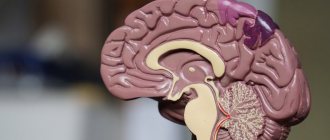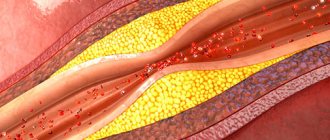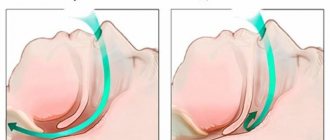Causes of the condition
There are many options to explain the constant morning fatigue. To figure out which one is right for you, you need to do some self-analysis. The cause may be a health problem or poor lifestyle.
Possible diseases that cause sleep disorders:
- Any chronic diseases accompanied by pain or other unpleasant sensations in the body. If such diseases are the cause, then they should be treated by appropriate specialists.
- Disorders that cause respiratory arrest at night.
- Restless legs syndrome.
If morning fatigue is associated with an incorrect lifestyle, then you need to reconsider your daily routine, eating behavior and identify the presence of bad habits. The most common reasons:
- Falling asleep after midnight.
- Inconsistency between sleep patterns and biological rhythms.
- Intermittent sleep.
- Bad habits – alcoholism, smoking, coffee abuse.
- Non-compliance with the daily routine.
- Uncomfortable conditions for a night's rest.
- Worries, stress, fears make you wake up in the middle of the night and prevent you from falling asleep again.
- If a person feels uncomfortable when falling asleep - he cannot fall asleep for a long time, is looking for a position, is nervous - this may be caused by the inconvenience of the bed, bedding, lack of silence or darkness.
With vitamin deficiency, the body works in an economical mode. Energy expenditure is low, so there is not enough strength to do the usual work.
If the search for the reasons does not lead to anything, you can try taking multivitamins. Perhaps it's a lack of them. The loss of strength is especially felt against the background of low hemoglobin. A complete blood test will help diagnose vitamin deficiency.
Sleep disturbance
Arthritis
Rheumatism
36665 06 November
IMPORTANT!
The information in this section cannot be used for self-diagnosis and self-treatment.
In case of pain or other exacerbation of the disease, diagnostic tests should be prescribed only by the attending physician. To make a diagnosis and properly prescribe treatment, you should contact your doctor. Sleep disturbance: causes of occurrence, what diseases it occurs with, diagnosis and treatment methods.
Definition
Sleep disturbance, or insomnia (insomnia), is a general term that includes difficulty falling asleep, problems staying asleep, and waking up too early. As a result, during sleep a person cannot fully restore strength and performance, which reduces the quality of life. Sleep disturbance to one degree or another is observed in almost half of the adult population, but only in 9–15% of people does this problem become clinically significant. In older people, chronic insomnia is observed much more often than in young people - more than 55% of cases.
With any sleep disturbances, a person experiences fatigue, decreased attention or memory, depression, depression, and decreased vital activity.
Types of sleep disorders
Depending on the cause of sleep disorders, primary and secondary insomnia are distinguished. When diagnosing primary insomnia, organic, psychiatric, or neurological causes for sleep disturbance are not noted. Secondary insomnia is the result of various diseases, taking stimulants, or any unfavorable external conditions.
Sleep disturbances can be acute (transient), short-term (up to 6 months) and chronic (more than six months). Acute sleep disturbance can occur in any person under the influence of stress, overexcitation, or due to time zone change. Chronic insomnia develops in people predisposed to it. Typically, this condition affects elderly patients, women, people who, for one reason or another, sleep no more than 5 hours a day, as well as those who experience prolonged absence from work, marital divorce, psychological and psychiatric trauma, and patients with chronic diseases.
Possible causes of sleep disorders
Difficulty falling asleep is the most common complaint of patients. The desire to sleep that a person experiences before going to bed, but it disappears under the influence of a variety of factors when the person lies down. These may be unpleasant thoughts and memories, the inability to find a comfortable position due to restlessness in the legs, pain or itching, or extraneous sounds. A light drowsiness is disturbed even by the slightest noise, and sometimes a person who has fallen asleep thinks that “he hasn’t slept for a minute.”
There can be many reasons for such difficulty falling asleep, in particular, lack of fatigue, spending a long time in bed during the day, irregular bedtime, anxiety, illnesses that cause itching or pain.
A common complaint is unpleasant sensations in the lower extremities (pins and needles, trembling, tingling, burning, twitching), which force you to constantly change the position of your legs (restless legs syndrome). Symptoms are significantly weakened or disappear completely with movement. The best effect is often achieved by walking or simply standing. Recently, the proportion of patients who have problems falling asleep due to the consumption of stimulating drinks (tea, coffee, energy drinks) in the evening, as well as the abuse of medications (caffeine, psychostimulants, some antidepressants, antipsychotics, nootropics) has increased.
Problems with maintaining sleep mainly consist of frequent awakenings, after which it is difficult to fall back to sleep, and a feeling of “shallow” sleep. The reasons for awakening can be very different (dreams, fears, nightmares, breathing problems, palpitations, the urge to urinate).
Most often, chronic insomnia is a symptom of neurological and mental diseases.
Complaints of poor sleep are typical for patients with stroke, dementia, Parkinson's disease, and Alzheimer's disease. Mental illnesses such as depression, schizophrenia, and anxiety-manic states are also accompanied by sleep disturbances.
In many cases, frequent awakenings at night are associated with sleep apnea.
This respiratory disorder occurs during snoring due to the collapse of the tissues of the pharyngeal ring during inspiration and is characterized by a short-term cessation of breathing, which is accompanied by a decrease in blood oxygen levels and interruption of sleep.
Disruption of the circadian rhythm almost always leads to chronic insomnia. This situation occurs during shift work and shift work, as well as among those who sit for a long time in the evening watching TV or a computer. Excess blue light from screens in the evening and night hours causes desynchronosis - a disruption of the circadian biorhythm, which, in turn, leads to sleep disturbances.
Frequent awakenings can be a consequence of cardiovascular (arrhythmias, arterial hypertension), pulmonary (COPD), musculoskeletal (arthritis, rheumatism), genitourinary (prostatitis, urinary incontinence) and endocrine diseases.
Problems with early morning awakening are observed in older people, people suffering from depressive disorders, and panic attacks. As a rule, sleep is interrupted at 4–5 o'clock in the morning and does not resume. Immediately after waking up, patients note a flood of negative thoughts rushing over them. In the morning and during the day they complain of a “broken” state, they have decreased performance, and constant drowsiness.
Which doctors should I contact for sleep disorders?
Initially, you should consult a general practitioner to determine the true cause of insomnia and identify possible concomitant diseases that may lead to sleep disturbances.
If you suspect depressive syndrome, you should consult a psychotherapist or neurologist. With successful treatment of neuropsychiatric disorders, sleep usually returns to normal.
In cases where diagnosing sleep disorders is difficult, the therapist refers the patient to a somnologist.
Diagnosis and examinations for sleep disorders
When diagnosing sleep disorders, the first step is to understand whether insomnia is primary or secondary. It should be borne in mind that about 80% of cases of sleep disorders are caused by various diseases. Along with complaints of poor sleep, the following factors should be taken into account: snoring, excess weight, arterial hypertension, neurological disorders (stroke, traumatic brain injury), the presence of diseases that can cause pain at night (rheumatism, myalgia, arthritis of various etiologies) or itching (psoriasis, herpes, thyroid and liver diseases).
Clinical manifestations
If a person does not get enough sleep, then he feels sleepy not only in the morning, but throughout the day. Among the main complaints of such people:
- “I can’t get enough sleep, even if I sleep for a long time”;
- “I can fall asleep for a split second even at work”;
- “I can’t work fully: my attention is scattered all the time, preventing me from concentrating, I have no mood, no strength”;
- “I want to sleep all the time.”
If these disorders are caused by sleep apnea, then the person wakes up several times during the night, but does not remember it in the morning. Holding your breath can be recorded by the patient's relatives.
Restless legs syndrome is characterized by uncontrolled movement of the lower extremities, which causes increased brain activity. It is believed that this disease is characteristic of pensioners, but there are cases of manifestations in young people.
Coffee lovers are also at risk. If the consumption of this invigorating drink is not controlled, then caffeine addiction occurs. As a result, after waking up, a person feels drowsy until the body receives the next portion of coffee.
About the importance of sleep
During sleep, our body rests and gains strength. It is necessary not only for physical, but also for mental health. Lack of sleep has a negative impact on well-being. Among the main symptoms of lack of sleep:
- drowsiness;
- apathy;
- fast fatiguability;
- decreased concentration;
- irritability.
If a person is constantly lacking sleep, he may develop depression, which significantly affects the quality of life. Also, lack of sleep leads to a decrease in immunity, and therefore can become a trigger for the development of serious diseases.
Lack of night rest has a particularly negative impact on performance. In a drowsy state, it is extremely difficult to concentrate on something and do quality work; laziness appears, preventing you from moving towards your goals. Another negative factor of lack of sleep is premature aging.
Rules to help you get enough sleep
You need to sleep at least 7 hours a day. It is important to take into account that each organism is individual. Some people need at least 9 hours for proper rest.
Sleep is subject to biological rhythms, so it should occur in the dark: night sleep is much more beneficial than daytime sleep, but if you lack sleep at night, you can compensate for it with a couple of hours during the day.
Experts recommend going to bed no later than 23:00, preferably at 22:00 or earlier. An hour of sleep before midnight replaces 2 hours after midnight.
If you can’t fall asleep so early, you should reconsider your lifestyle and make the following adjustments to it:
- do not eat after 19:00, only a light snack is allowed;
- 2 hours before bedtime, do not drink coffee, black tea and other tonic drinks;
- 2 hours before bedtime do not watch TV;
- Go for a walk in the evening.
For two hours before bedtime, you should reduce your activity, avoid reading negative news, and avoid discussing disturbing topics. It's better to read a book or take up a calming hobby. Replace coffee and tea with water or herbal infusion.
How to normalize sleep
If chronic lack of sleep is not associated with diseases, then you can cope with this condition on your own. What to do in each specific case:
- Those suffering from sleep deprivation should follow the rules of a healthy lifestyle. It is advisable to consume food and drinks for the last time 2-3 hours before going to bed. Immediately before this, you need to do something relaxing, but not strenuous work. There should be room for walks during the day. Fresh air saturates with oxygen, and the sun's rays contribute to the production of vitamins necessary for the body. Physical activity is also important for a person. Its absence can cause insomnia.
- It has been proven that the best time to fall asleep is before 22:00. It is in the interval from 22:00 to 00:00 that the body rests and recuperates. Even if your sleep time is more than 8 hours, but you went to bed after 00:00, your condition will be characterized by weakness, absent-mindedness, and loss of strength. Another condition is that sleep should not be interrupted. If this happens, you should increase the rest period by several hours.
- To get rid of the bad habit of drinking coffee in excess throughout the day, you need to stop drinking the drink for at least two weeks and monitor your condition. If the morning has become cheerful and active, then the reason for lack of sleep is the effect of caffeine.
- Equally important is the comfort of the bed. First of all, the bed must meet all safety requirements and fit the body size. Linen and bedding should be made from natural hypoallergenic material. The room needs to be ventilated at night.
- The consequences of daytime stress can be eliminated on your own. To do this, before going to bed, you need to carry out relaxing procedures in the form of baths, massages, listening to meditative music and others.
In any case, the problem must be solved, otherwise constant drowsiness will lead to neurosis and depression.
When should you go to the doctor?
The dangers of insomnia cannot be underestimated. But fighting it on your own is not the best option. Of course, it is worth creating all the conditions for normal sleep: giving up an evening cup of coffee, going to bed at the same time, preferably no later than 23:00. But the most important thing is to find the causes of sleep problems.
– Of course, it is best to consult a somnologist. This is a specialist who diagnoses and treats various sleep disorders. In Belarus, this is a rather rare specialty, so if this is not possible, then you can start by visiting a therapist, who, if necessary, will refer you to more specialized specialists - a somnologist, psychotherapist, neurologist, otorhinolaryngologist,
– Tatyana Vladimirovna Gorbat recommends.
What symptoms should you consult a doctor for?
- Regular problems falling asleep, frequent or too early awakenings - if this situation repeats 3 times a week or more often, it’s time to consult a specialist.
- Constant drowsiness, irritability, fatigue during the day.
- The feeling that you are more often not getting enough sleep than getting proper rest.
- Absent-mindedness, including in solving work issues, without visible external reasons.
- Nightmares - perhaps the body is trying to signal in this way about problems with internal organs.
Headaches in the morning, constant nervousness, sudden and causeless mood swings can be the consequences of insomnia, and in order to eliminate them, you must first understand the causes.
Optimal conditions for sleep
To decorate your bedroom, it is better to choose the quietest room, the windows of which do not face a busy street. The bed should be spacious and as comfortable as possible. Pay special attention to choosing a mattress. It should be neither too hard nor too soft, and should provide the body with the opportunity to relax as much as possible. It is better to choose a low pillow so that the spine remains in a straight position while sleeping.
When choosing bedding, give preference to natural, breathable materials. The best option is 100% cotton underwear.
Sleep will be healthier and more sound if you sleep in complete darkness. Always turn off the lights at night and cover the windows with thick curtains or blinds. If you get up to go to the toilet at night, try not to turn on a bright lamp. A night light with a reddish light is best; it will not interrupt the production of melatonin.
It is also very important to breathe fresh air, so the room must be well ventilated. Keep in mind that in 1 hour an adult processes about 3 cubic liters of oxygen. To refresh the air, it is better to leave the window ajar.
The optimal temperature in the bedroom is 20-22 degrees Celsius. At this temperature, the body fully relaxes, but does not overheat. If this temperature seems cool, dress warmly and cover yourself with a warm blanket, but keep your head cool.
When going to bed, try not to think about problems, better think about something pleasant, or even better - completely get rid of thoughts and concentrate on your breathing.
What else needs to be considered
If you follow the above recommendations every day, you will fall asleep faster, sleep will become more sound, and in the morning you will feel cheerful and full of energy. If sleep still does not return to normal, there may be some health problems or a lack of certain substances. You should not self-medicate and resort to sleeping pills. They are aimed at fighting the effect, not the cause. In addition, sleeping pills quickly become addictive, and then the problems will only get worse.
To find out the cause of insomnia and find the appropriate treatment, it is best to consult a doctor. You can find a qualified specialist in Volgograd, Volzhsky and Mikhailovka at DIALINE clinics. We provide a wide range of medical services. All patients are accepted by appointment, eliminating the need to wait in line. To quickly and easily make an appointment with specialists and gain access to additional opportunities, we recommend registering in your personal account on our website.









